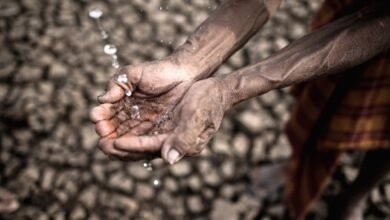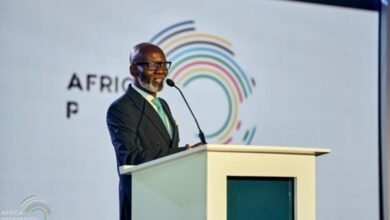Africa Green Forum: Green growth at the heart of Africa’s transformation
At the Africa Green Forum, held on November 7 alongside the Ecomondo event in Rimini, the issue of energy and ecological transition in Africa was addressed from every angle. With delegations from eight African countries, experts discussed strategies to make green growth a driver of sustainable development for the continent. It also served as a strategic lever for cooperation with Italy.
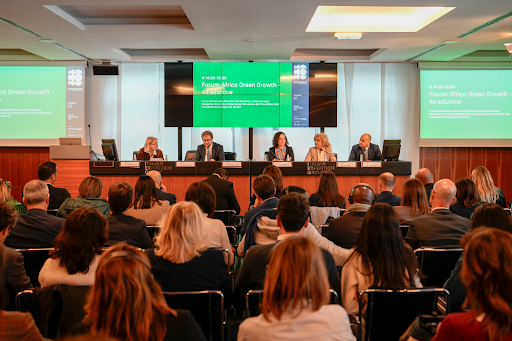
« This is not the first time we have organized such an initiative, but it is the first time we have welcomed delegations from eight African countries. This shows the importance Africa deserves in the context of ecological transition, » said Corrado Peraboni, CEO of the Italian Exhibition Group (IEG), setting the tone from the outset.
The 4th edition of the Africa Green Forum, held on November 7 in Rimini as part of the green and circular economy forum, Ecomondo, brought together public and private sector actors, as well as representatives of international organizations, to discuss the challenges and opportunities related to integrating a green economy in Africa. The message was clear: ecological transition can and must go hand in hand with the continent’s economic growth.
This year’s 2024 edition of the forum marked a turning point, with clear commitments on sustainability and international cooperation, particularly under the Mattei Plan.
The Mattei Plan: Towards green growth diplomacy
Announced at the Italy-Africa Summit in Rome on January 28-29, 2024, Giorgia Meloni, the President of the Italian Council, unveiled a new « Mattei Plan for Africa, » named after the development and cooperation project designed by Enrico Mattei in the 1960s. This plan focuses on the energy sector, around which a constructive synergy could be built between resource-rich African countries and Italy, which aims to be the European leader in green economy.
Through this plan, Italy reaffirms its interest in Africa and seeks to differentiate itself from other « powers » present on the continent through a more « green » approach. Italy’s historical presence in Africa has been strengthened over the last ten years, with the number of offices of the Italian Trade Agency (ICE) increasing from one in 2013 to eight in 2023. In 2022, trade reached 70 billion euros, primarily due to an increase in African imports, which doubled to 47 billion euros, particularly focused on energy raw materials from Algeria, Libya, Egypt, and Sub-Saharan Africa. Italy is thus the second-largest importer of African products globally and the 11th largest exporter.
“About 320,000 people currently work in the renewable energy industrial sector in Africa, but this number could reach 8 million jobs”
Now, through the Mattei Plan, which aims to strengthen the partnership between Italy and African countries by disbursing 5.5 billion euros over the next four years, Italy seeks to establish a more equitable relationship with Africa by supporting green growth initiatives. As Fabio Massimo Ballerini, Sub-Saharan Africa Advisor at the Africa Green Forum, emphasized: « The Mattei Plan, launched earlier this year, is committed to strengthening local capacities with a sustainability goal. » The forum also served as an opportunity to present some initial achievements: a biofuels project in Kenya, funded with 75 million euros, and an excellence center in Morocco for training African renewable energy experts. « About 320,000 people currently work in the renewable energy industrial sector in Africa, but this number could reach 8 million jobs, » assured Paolo Cutrone of the Res4Africa Foundation. He highlighted the importance of training centers like the one in Morocco, which has already trained 48 participants from 14 African countries. These initiatives aim to strengthen local skills and promote inclusive green growth.
Green diplomacy was also a key theme at the forum. Alessandra Pastorelli, from the Directorate-General for the Promotion of the National System, stressed the importance of reinforced collaboration between Italy and Africa: « Africa represents 20% of the global population but attracts less than 3% of investments in the energy sector. All stakeholders must come together to change this dynamic. » She also praised young African entrepreneurs, whom she sees as drivers of transformation for the continent, capable of drawing inspiration from Italian SME models.
“We must continue seeking international partnerships to acquire the most modern and context-appropriate technologies”
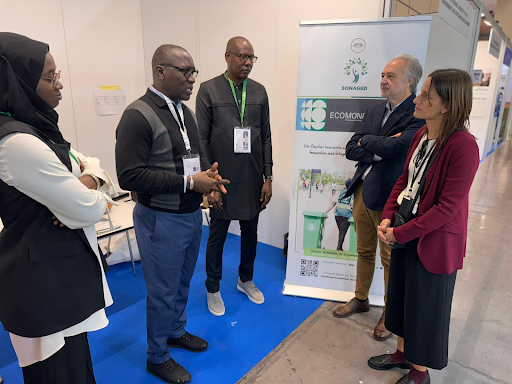
Financing and training, according to Sharon Kinyua, Coordinator at the Electricity Sector Association of Kenya (ESAK), are exactly what Africa expects from its international partners, particularly Italy, in the energy sector. Although Kenya has « high potential » in renewable energy, with 90% of its energy currently renewable and a goal of « 100% by 2030, » there are major challenges in implementing projects, including long delays that slow the pace of the energy transition. Discussing her association’s program to enhance high-level management skills in the energy sector, she added, « We still need to encourage new graduates to understand the energy sector. »
Also present at the event was the Ivorian delegation. Among them was Ferdinand Konan, co-founder and Director of Marketing and Public Relations at Ivoire Oilfield Services, specializing in industrial waste management and transformation. « We are committed to transforming plastic waste and used tires into biodiesel using pyrolysis technology. » With an estimated 400 million used tires in Côte d’Ivoire, this company aims to transform these waste materials into energy resources, contributing to the fight against environmental and health hazards caused by such waste. « Today, we have grown from 5 to 65 employees and plan to create treatment centers in different regions of the country. » To support its expansion, the company needs technical and financial partners. Ferdinand’s mission, who participated in Ecomondo. « Access to advanced technologies is also a major challenge. The machines needed to treat waste ecologically are expensive and often need to be imported. We must continue seeking international partnerships to acquire the most modern and context-appropriate technologies. »
A similar search for solutions was voiced by his fellow countryman, Moutar Kouadio, founder of Zorodesh Beraka, a company dedicated to recycling paper waste from public and private administrations. « We collect, recycle, and transform used paper into products like tissues and toilet paper, » said Kouadio. With about 300 employees, the company has contributed to the creation of green jobs and aims to expand its model across Côte d’Ivoire and beyond. However, access to the right technologies remains a challenge. « We are here to find partners who can help us acquire advanced technologies to grow our business. » He also noted, « The complex procedures and eligibility criteria for green financing often discourage small African companies like ours. »
“A great economic opportunity, a new source of growth, but also a lever for creating sustainable jobs”
However, financing does exist, assures Ndiaye Gueye, Director of Partnerships and Cooperation at SONAGED, the Senegalese institution responsible for waste management in Senegal. « Today, beyond green financing, there are many partnership opportunities that allow us to implement various types of valorization initiatives. » He further adds, « We see waste management as a great economic opportunity, a new source of growth, but also a lever for creating sustainable jobs. » Even though, he stresses, transitioning to a circular economy requires long-term commitment, particularly to « change citizens’ behaviors and promote environmental citizenship education. »
Hence his presence at Ecomondo. « Waste management in Senegal is a critical challenge, and our presence at Ecomondo allows us to discover best global practices and collaborate with international actors in this field. » The fair thus represents an opportunity to highlight local initiatives while drawing from successful experiences in other countries. For SONAGED, the goal is to expand its network, forge strategic partnerships, and actively contribute to Senegal’s sustainable development goals.
“We must leverage new ecological solutions and financing lines offered, which will support our businesses towards sustainability”
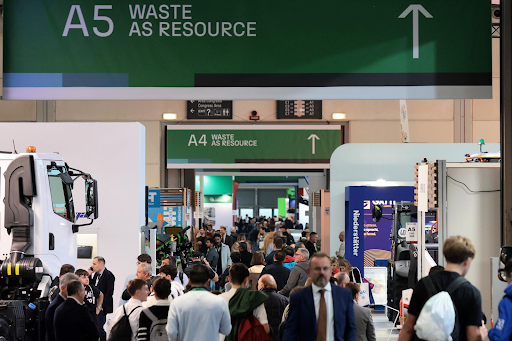
L’économie verte comme source de création de richesse et d’emploi c’est également le chemin suivi par la Tunisie représentée à l’évènement, entre autres, par le Centre Technique du Textile en Tunisie, Cettex. « Le secteur textile tunisien joue un rôle clé dans l’économie du pays, et sa compétitivité dépend aujourd’hui de l’innovation et de la transition écologique » rappelle El Mohsen Missaoui, directeur général du Cettex. En se rendant à Ecomondo, ce dernier cherche à explorer de nouvelles technologies et à établir des partenariats avec des fournisseurs de solutions écologiques afin de réduire l’empreinte carbone et la consommation d’eau dans l’industrie textile. Une industrie qui mise sur l’innovation et la durabilité pour renforcer sa compétitivité et se démarquer de ses notamment asiatiques : « L’innovation et tout ce qui touche à l’écologie et au développement durable sont les facteurs clés pour améliorer la compétitivité du secteur. » Cette transition s’accompagne de projets pilotes, comme celui visant à produire des jeans avec zéro consommation d’eau et zéro pollution, visant à positionner la Tunisie comme un acteur majeur dans l’industrie textile durable. Nous devons exploiter les nouvelles solutions écologiques et les lignes de financement proposées, qui permettront d’accompagner nos entreprises vers la durabilité. »
Ce qui était au RDV d’Ecomondo et de l’Africa Green Forum lesquels se sont conclus avec le sentiment d’une mission achevée. Des connexions ont été faites, des commandes ont été passées pour certains, des financements auront peut-être été obtenus pour les plus chanceux. Mission réussie pour IEG en attendant qui aura confirmé le positionnement de l’Italie en tant que hub pour l’économie verte et circulaire, en direction de l’Afrique notamment. Comme le souligne Corrado Peraboni : « Nous espérons que cette initiative sera considérée comme la maison de la durabilité pour l’Afrique. »
By Dounia Ben Mohamed, Rimini
Tags: #Africa #GreenEnergy #SustainableGrowth #MatteiPlan #RenewableEnergyTraining



